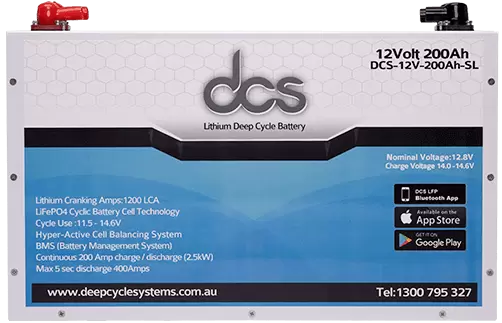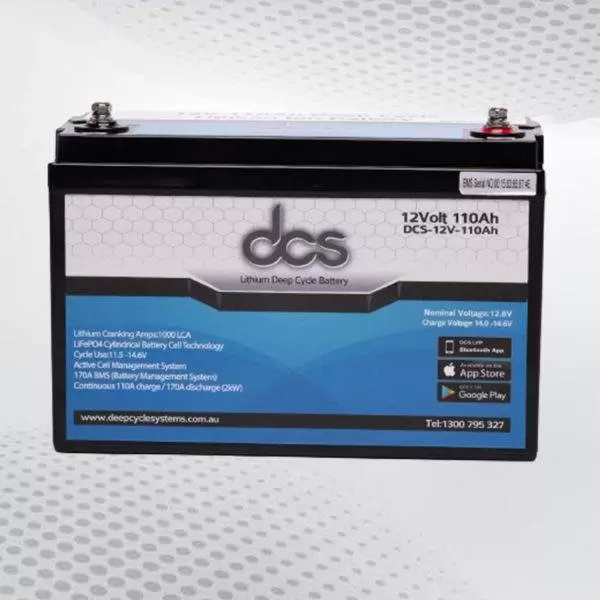Are you looking to enhance your car’s performance and efficiency? One simple way to achieve this is by upgrading to a battery lithium car. In this blog post, we will explore the benefits of using a battery lithium car and how it can revolutionize how your vehicle operates. From extended battery life to quick charging capabilities, there are numerous advantages to switching to a lithium battery.
Understanding Lithium Batteries and Their Composition
Lithium batteries are powered by lithium-ion technology, which has fundamentally changed how we power our vehicles. Lithium ions at the heart of a lithium battery move from the negative electrode to the positive electrode during discharging and back when charging. This flow of ions, enabled by a liquid electrolyte solution, facilitates the energy transfer within the battery.
The materials used in these cells include lithium cobalt oxide or lithium iron phosphate in the cathode and graphite in the anode, contributing to the battery’s high energy density and stability. This advanced composition allows lithium batteries to maintain their integrity and performance over many charge-discharge cycles.
Additionally, lithium batteries are constructed with built-in safety features such as vents and electronic monitoring circuits that regulate temperature, voltage, and current. These measures help prevent overcharging, overheating, and short-circuiting, addressing safety concerns associated with lithium-ion technology.
Lithium batteries do not exhibit this phenomenon, unlike traditional batteries, which can suffer from the ‘memory effect’ (reduced efficiency due to repeated partial discharge and recharge cycles). This characteristic, along with their ability to hold a charge for longer periods and withstand numerous recharging cycles, marks a significant advancement in battery technology, underscoring the shift towards more reliable and durable energy solutions for automotive applications.
Significantly Extended Battery Life
One standout feature of lithium car batteries is their impressive longevity, surpassing their lead-acid counterparts. These batteries boast a lifespan of up to three times longer, attributed to their advanced technology and efficiency in power management. This extended life is a testament to the durability of lithium batteries and their ability to withstand the rigours of daily use without significant degradation in performance.
The robust nature of lithium batteries stems from their superior charge-discharge cycles, which maintain high efficiency over time. This characteristic is crucial for car owners, as it translates to less frequent battery replacements and, consequently, reduced vehicle maintenance costs. By investing in a lithium battery, drivers essentially invest in years of reliable service, ensuring their vehicle remains powered longer and performs optimally.
Furthermore, lithium batteries’ resilience to temperature fluctuations plays a pivotal role in their extended lifespan. Lithium variants maintain consistent power delivery, unlike traditional batteries, which can suffer from reduced performance in extreme weather conditions. This adaptability not only furthers their lifespan but also gives car owners peace of mind, knowing that their vehicle’s battery is less likely to fail when needed.
In essence, the longevity of lithium car batteries represents a significant advancement in automotive power solutions, offering a blend of reliability, reduced maintenance, and sustained performance that is hard to match.
Enhanced Performance and Efficiency
Lithium batteries elevate the driving experience by supplying a robust power source to the vehicle’s electrical system. This boost in energy allows for noticeable enhancements in the vehicle’s overall performance. Drivers can significantly improve acceleration, making the car more responsive when increasing speed or merging onto highways. Additionally, the efficiency of lithium batteries contributes to better fuel economy. Since these batteries are adept at maintaining a consistent power supply, the alternator is under less strain, leading to less fuel consumption and improving the vehicle’s efficiency.
The streamlined operation of lithium batteries also ensures that every aspect of the vehicle, from the ignition system to the power steering, operates more smoothly. This seamless integration of power translates into a quieter, more refined driving experience. Furthermore, the reliability of lithium batteries in providing steady power helps reduce wear and tear on the vehicle’s components, potentially lowering maintenance costs over time.
Moreover, lithium batteries’ high energy density means they can support advanced automotive technology without compromising the vehicle’s performance. Whether they power infotainment systems, enhance navigation aids, or improve safety features, lithium batteries are at the core of modern vehicular innovations. Their ability to efficiently manage power requirements boosts the vehicle’s capabilities and ensures that drivers can utilize the full range of their car’s technological advancements without performance dips.
 Quick and Efficient Charging Capabilities of Lithium Car Battery
Quick and Efficient Charging Capabilities of Lithium Car Battery
One of the standout features of lithium car battery is its remarkable charging efficiency. Thanks to their lower internal resistance compared to traditional lead-acid options, these batteries can accept a charge at a quicker rate. This attribute significantly reduces downtime due to charging, ensuring your vehicle spends more time on the road and less time tethered to a charger. The fast recharge capability is particularly beneficial for electric vehicles (EVs) and hybrid models, where charging speed can impact daily usability and convenience.
Lithium batteries efficiently utilize the energy received during charging, minimizing energy loss and enhancing the overall charging process. This efficiency is not just about speed; it also pertains to the effective use of power, which contributes to the battery’s longevity and performance. This means an expedited charging process for drivers without compromising the battery’s health or the vehicle’s range.
Moreover, the advanced technology behind lithium batteries supports integrating smart charging systems, which can further optimize charging times and battery life. These systems can adjust the charging rate based on the battery’s condition and usage patterns, ensuring it maintains its peak condition over time. This smart charging capability underscores the forward-thinking design of lithium car batteries, aligning with the needs of modern drivers and their vehicles.
Lightweight and Space-Saving Design
The compact nature of lithium batteries presents a substantial advantage for vehicle design and performance. Traditional lead-acid batteries often require significant space and contribute to the vehicle’s overall weight, which can impact fuel efficiency and handling. In contrast, lithium batteries offer a more lightweight solution, reducing the vehicle’s weight and enhancing maneuverability and fuel economy. This weight reduction is particularly beneficial for electric vehicles (EVs) and high-performance sports cars, where every pound matters for efficiency and speed.
Their space-saving design allows for greater vehicle design and engineering flexibility, enabling manufacturers to optimize the layout for additional cargo space or more innovative features. This aspect is crucial for modern vehicles that must accommodate advanced technology without compromising design or performance. The smaller size of lithium batteries also means that installation and replacement are simpler and less time-consuming, a convenience that extends to both manufacturers and vehicle owners.
By leveraging lithium batteries’ lightweight and compact design, car makers and owners alike can enjoy the dual benefits of enhanced performance and practicality, making them an integral feature of next-generation automotive design.
Eco-Friendly Option for the Conscious Consumer
For those prioritizing environmental sustainability, choosing a lithium battery for your vehicle aligns with eco-friendly values. Lithium batteries present a significant environmental advantage over traditional lead-acid batteries due to their nontoxic nature and absence of heavy metals that can leach into ecosystems. This cleaner technology minimizes the ecological footprint associated with battery disposal and production, reflecting a conscientious choice to preserve our planet.
Additionally, the efficiency of lithium batteries plays a crucial role in reducing energy waste. Their ability to recharge quickly and retain power longer means less electricity is consumed over the battery’s lifecycle. This efficiency contributes to reducing the overall demand for fossil fuels, particularly in the context of electric vehicles (EVs), where cleaner, renewable energy sources can be used for charging.
By adopting lithium batteries, consumers benefit from superior performance and participate in a larger movement towards cutting greenhouse gas emissions and advancing towards a more sustainable future in transportation. The adoption of lithium batteries supports the transition to greener automotive technologies, embodying a proactive step for individuals looking to make environmentally responsible choices without compromising the quality or performance of their vehicles.
Cost-Effectiveness over Time
Investing in a lithium battery for your vehicle might seem like a considerable expense at the outset, but it’s a choice that pays dividends in the long run. The superior longevity of these batteries significantly diminishes the need for frequent replacements, a common and costly inconvenience associated with their lead-acid counterparts. This durability translates into tangible savings, reducing the overall lifecycle cost of owning and maintaining a vehicle.
Additionally, the efficiency of lithium batteries in terms of energy usage and their minimal maintenance requirements contribute to a reduction in ongoing expenses. Drivers can anticipate fewer instances of battery-related breakdowns and the associated repair costs. The ability to hold a charge longer and the quick charging capabilities also mean less energy is wasted, which is good for the environment and can lead to savings on electricity bills for electric vehicle owners.
What’s more, the performance benefits of lithium batteries can indirectly affect cost savings. For instance, the enhanced fuel economy in conventional vehicles and the reduced wear and tear on vehicle components can lower the amount spent on fuel and maintenance over time.
While the initial investment in a lithium battery may be higher, the cost benefits become increasingly evident, making it a financially wise choice for the discerning car owner looking to optimize their vehicle’s performance and cost-efficiency.
FAQs
Q: Can lithium batteries be used in any car?
A: Lithium batteries are compatible with most modern vehicles, including electric, hybrid, and gasoline-powered cars. However, checking the manufacturer’s recommendations is crucial to ensure compatibility with your specific model.
Q: How do I maintain my lithium car battery?
A: Lithium car batteries require minimal maintenance. To ensure optimal performance, keeping the battery charged and preventing it from being depleted completely is advisable. Regularly check for firmware updates if your battery supports smart charging features.
Q: Are lithium car batteries safe?
A: Yes, lithium car batteries are safe. They have advanced safety features to prevent overheating, overcharging, and short-circuiting. Proper handling and adherence to manufacturer guidelines further enhance their safety.
Q: How does the weather affect lithium car batteries?
A: Lithium batteries are more resilient to temperature fluctuations than traditional batteries. However, extremely cold or hot temperatures can affect their performance somewhat, but they generally maintain reliable power output in various weather conditions.
Conclusion
In conclusion, upgrading to a lithium car battery offers a multitude of advantages that enhance your vehicle’s performance and efficiency. Lithium batteries represent a significant leap forward in automotive technology from the extended lifespan and rapid charging capabilities to the environmental benefits and cost savings over time. Whether you’redriving an electric vehicle, a hybrid, or a traditional gasoline-powered car, switching to a lithium battery can provide a more reliable, powerful, and eco-friendly driving experience.
| Other Good Articles to Read |
| Blogs-Nation |
| Blogs-Peoples |
| Bryan Smith Blogs |
| intellect blogs |
| the fault in our blogs |
| blogs eu |
| oz forums |
| recruitment blogs |
| zet blogs |
| id blogs |
| Blog Studio legale |
| blogs map |
| Related Business Listings |
| Contact Directory |
| Local Business Profiles |

